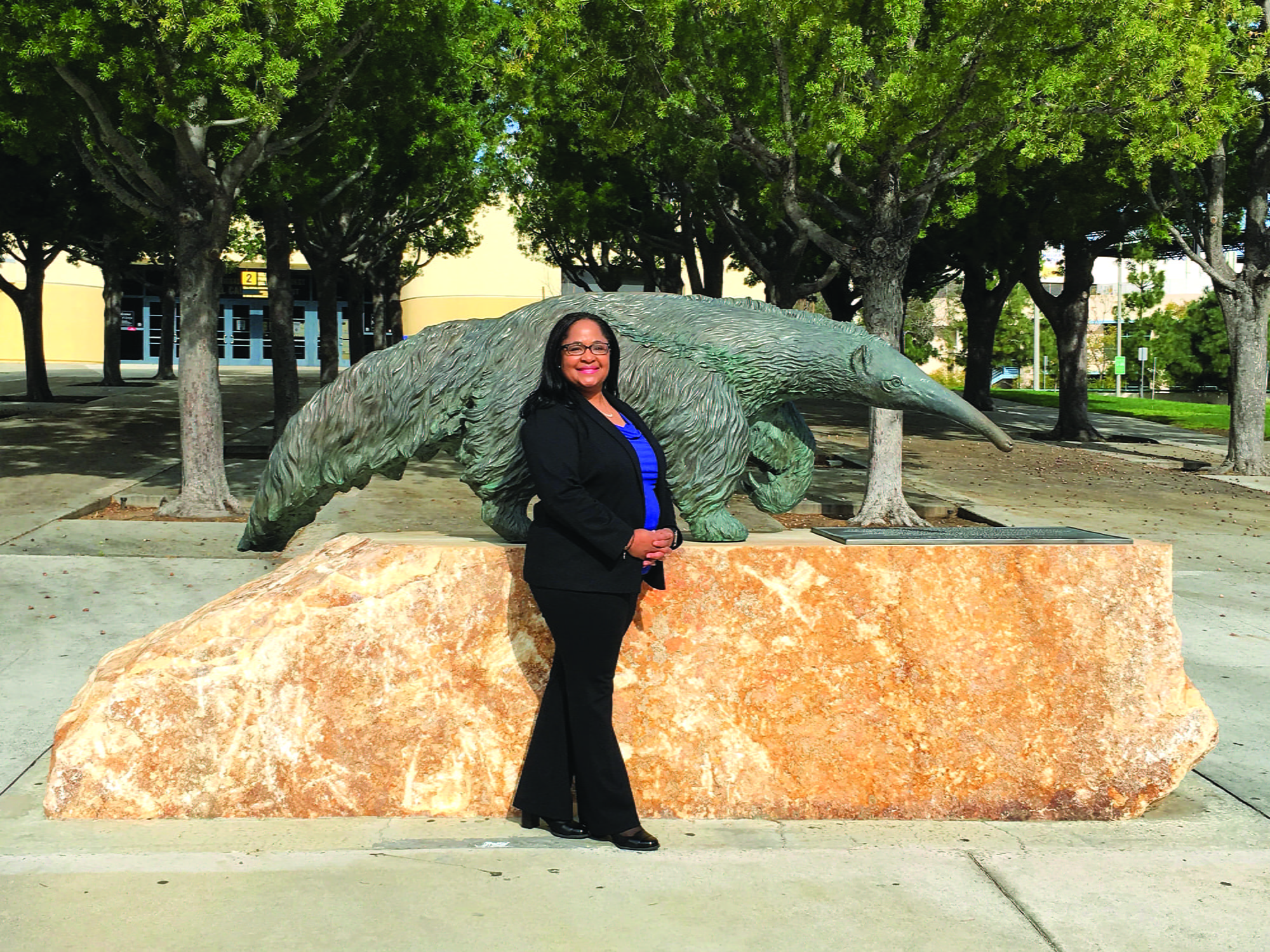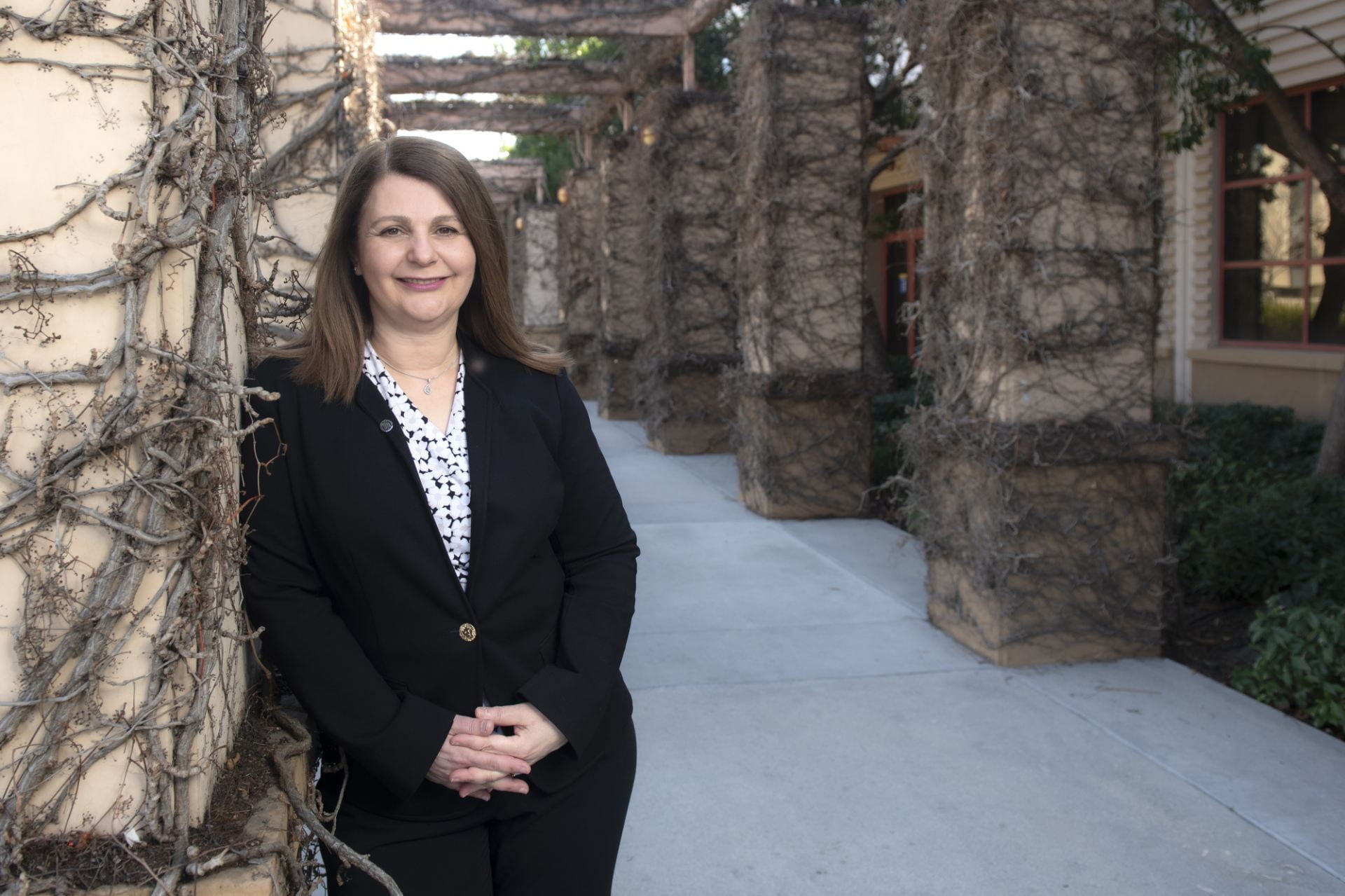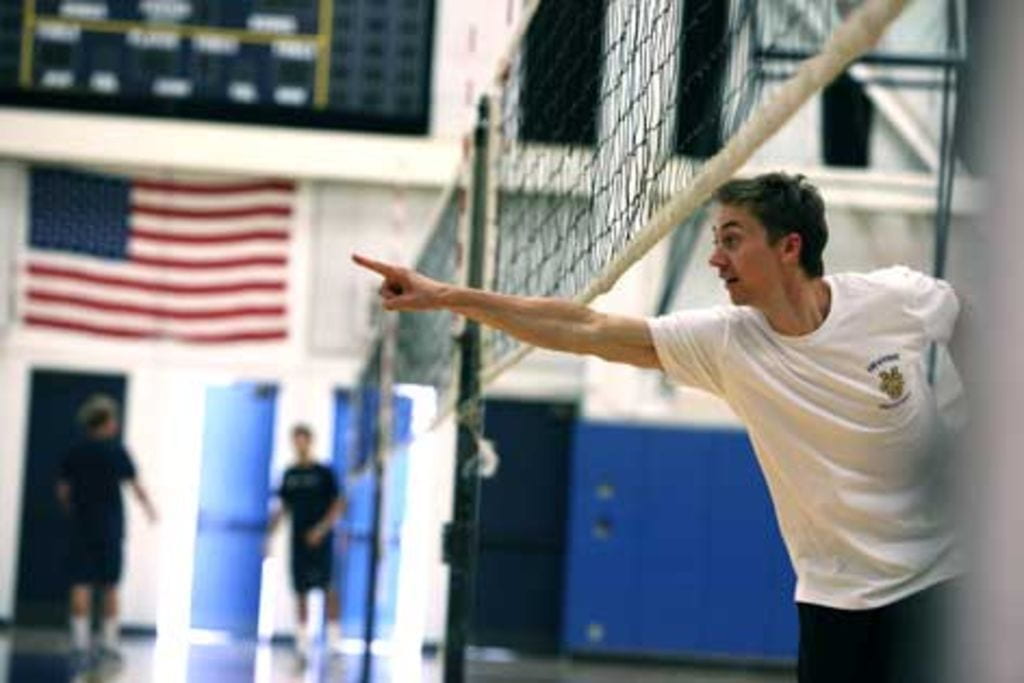Sporting life lessons
Athletic director Paula Smith recalls the importance of relationships for succeeding in a career, and in life

My introduction to sports was early in my adolescent years. My love for it was shaped naturally – while playing – and I didn’t even realize it was happening. Being a daughter of a military family, I lived in several states and in Germany. It didn’t matter if you were the new kid on the block or if you understood the local language; you could connect playing sports. To me, it was simply adapting to a new environment and making friends.
I bowled with my family (mom, dad and two sisters). I enjoyed it so much that I joined teams with my sisters and, eventually, on my own. I played recreational sports, including fast-pitch softball and basketball, in city leagues and then in high school. I lettered in volleyball and basketball. I assumed these opportunities had always existed. It never occurred to me that there was a time when women were denied such access to sports. Thankfully, due to Title IX, the doors had been opened for women.
Coming out of high school, I knew I was not a recruitable athlete and that my playing days would likely be over. I went off to New Mexico State University not sure what I wanted to do, like many freshmen. I chose to study accounting but quickly realized I was not interested in preparing and examining financial records; it just didn’t keep my interest. Again like many students, I changed my major – from accounting to marketing. This was lesson No. 1 on my journey. At the basic level, marketing is the business of creating relationships with and satisfying customers. Lightbulb moment: What connected this field of study to my love of sports? Relationships.
Since I had not been recruited to play sports and didn’t even contemplate doing so in college, the next-best thing was the opportunity to work in the athletics department in a college work-study job. It was an extension of sports and an opening to realize a career in this field. Fast forward four years and graduation was upon me. What would I do? Continue to study or work? I decided to take a break from studies and apply for jobs. I took my business law professor’s recommendation and applied for an internship. It was with the Big West Conference office and was created through an NCAA grant for minorities and women in sports.
That internship launched my career in athletics, and I never looked back. It’s hard to imagine a career in another field. This brings us to lesson No. 2: matching one’s passion with work. Athletics is more than a job that compensates. My employment opportunities have provided me with experiences and education that fuel my current and future actions.
I have had a wonderful career working at the Big West Conference in the compliance and championships units as well as sports administration at two University of California campuses (UCI and UC Riverside). My passion for sports has been shaped through intercollegiate athletics, which fosters character; good sportsmanship; teamwork; health, physical fitness and safety; social skills; hard work; and perseverance. There is a value to sports in higher education that reaches beyond the classroom; it is woven into the fabric of campus life and extends into the community.
At UCI, the mission is to mobilize knowledge, serve the people and educate its students. UCI Athletics consists of 313 student-athletes and 125 coaches and staff who contribute to the student-athlete experience on campus. It aids the community through stewardship and produces the best and brightest on and off the field. It is all about people. This is my why. Why I do what I do. Why I love what I do. Why I have passion for what I do. And it aligns with the institutional why.
Pivoting back to the beginning of my career and that internship brings me to lesson No. 3: Give back and pay it forward. The NCAA grant that created the internship was intended to increase the involvement of minorities and women in sports by developing an inclusive environment, thereby generating a culture that promotes fair and equitable access to opportunities and resources. People have to see someone like them participating to believe it’s possible.
My why equals passion and that, in turn, makes all things possible. Thus, over the course of my career, I have given back by volunteering with various NCAA entities, such as the Minority Opportunity and Interest Committee, the National Collegiate Men’s Volleyball Committee and the Division I Council. Paying it forward is working every day as a leader to create an inclusive future for minorities and women in sports.
Accepting and understanding the responsibility of having a seat at the table to influence policies and decisions is key. In my own journey, there were times that I delayed advancing my career for fear of failure or not being comfortable saying “I’m not sure I’m ready” and asking for support. This is something women do but rarely acknowledge. But men and women have encouraged and supported me countless times. For me, paying it forward is willing to be vulnerable, to share my fear and discomfort, with the intention of helping other underrepresented individuals take a leap of faith to advance and know that they’ll be supported.
Celebrating women in sports requires acknowledging UCI’s first female athletics director, Linda Dempsay, and the achievements of women’s programs at UCI, such as numerous Big West titles, NCAA appearances, All-Americans, conference Players of the Year and Lauds & Laurels recipients.
After 30 years, I still think back to how oblivious I was about the opportunity to play sports or have a career in athletics. And I’m grateful for the lessons provided.


